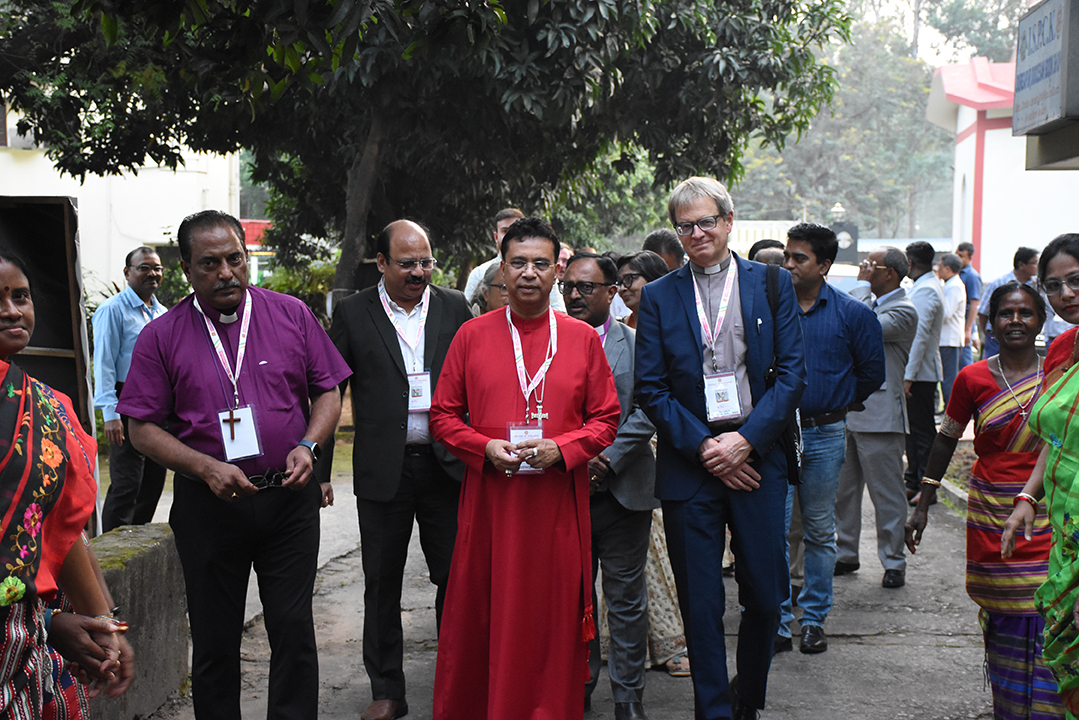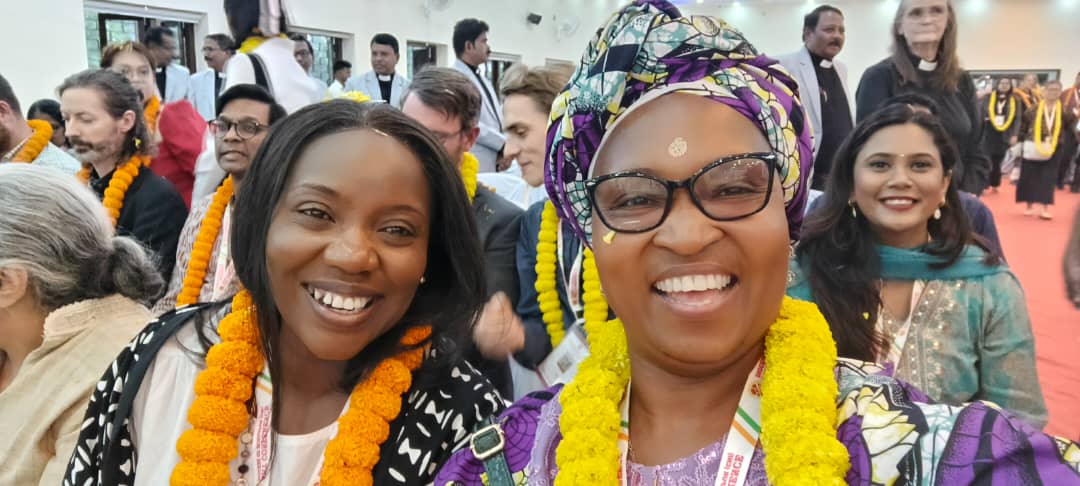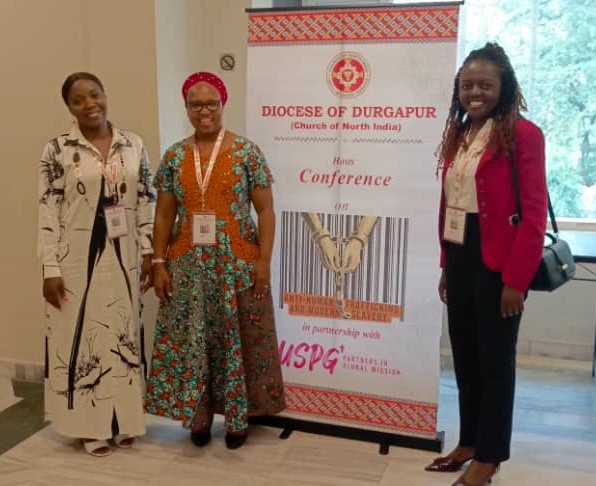PROCMURA, USPG and Global Stakeholders, Including Anglican Alliance Churches, Join Voices to Combat Human Trafficking and Modern-Day Slavery
- By PROCMURA
- Events
- Hits: 341
More than nine million Africans are trapped in modern slavery, according to recent data from the International Labour Organization. From forced labour and domestic servitude to human trafficking and deceptive recruitment, the continent continues to bear a heavy share of this global crisis. With young people aged between fifteen and thirty among the most affected, the need for collective action has never been greater. It is within this reality that PROCMURA joined church leaders and civil society organisations from around the world at the International Conference on Anti-Human Trafficking and Modern Slavery, held from 3 to 8 November 2025 in Durgapur and Malda, India.
The event was organised and hosted by The United Society Partners in the Gospel in partnership with the Diocese of Durgapur. It brought together representatives from more than fifteen countries to share experiences and strengthen collaboration in the global fight against trafficking. Delegates from India, the Philippines, Palestine, the United States, the Caribbean, France, New Zealand, Japan, Korea, Brazil, Romania, and several African countries took part in the meeting.
The conference focused on survivor-centred responses, community-based prevention, and the role of faith institutions in confronting human trafficking and modern-day slavery. The discussions highlighted that these crimes have continued to devastate families and economies, especially in the global south, where poverty, unemployment, and displacement create fertile ground for exploitation.

During the conference, PROCMURA presented its prevention strategy which unites Christian and Muslim leaders, equips young peace ambassadors, and supports women-led cooperatives that help survivors rebuild their lives. The organisation shared its work from across Africa, where interfaith collaboration has become a strong pillar of community resilience. In Kenya, Nigeria, and Mali, joint Christian and Muslim campaigns have raised awareness on safe migration and human dignity. In several regions, PROCMURA’s youth ambassadors use digital media and local forums to reach peers with practical information on how to avoid trafficking traps.
Delegates also reviewed case studies from Malawi, Kenya, Uganda, Nigeria, South Africa, and the Gulf region as presented by the Team Leader of PROCMURA Ms. Joy Wandabwa. In Malawi and South Africa, coordinated action by churches, NGOs, and the police led to the rescue of workers trafficked into forced labour. In Kenya, networks that lured young men with false job offers abroad were dismantled after early intervention by faith communities. In Uganda and Nigeria, the organisation’s partners reported growing risks tied to irregular migration and online recruitment scams. Across the Gulf states, thousands of African migrants continue to face exploitation, leading unions and rights groups to file complaints before the United Nations.

These examples painted a clear picture of the scale and complexity of the problem. The data shared at the meeting showed that women and children make up nearly seventy percent of all victims in Africa, while traffickers increasingly use digital platforms to recruit and control their targets. Such realities call for stronger protection systems and better coordination among governments, faith leaders, and civil society.
At the conference, PROCMURA emphasised that faith-based collaboration remains one of the most powerful yet underused tools in combating trafficking. Where Christian and Muslim leaders work together, trust grows, awareness spreads, and exploitation becomes harder to hide. The organisation called for the formal inclusion of faith actors in national anti-trafficking task forces, the expansion of survivor services, and the scale-up of community-level prevention programmes.
It was also observed that the fight against trafficking is not only about arresting offenders but about restoring human dignity. Survivors need psychosocial care, legal support, and sustainable livelihood options to rebuild their lives. Participants urged governments to increase funding for survivor services and to strengthen labour laws that protect vulnerable populations.
For PROCMURA, this conference was an opportunity to affirm its long-standing commitment to protecting human life and dignity through faith-based cooperation. The organisation continues to work across 24 African countries, building partnerships that link peacebuilding, education, and economic empowerment to prevention and rehabilitation.

As one facilitator reflected, “Faith is not only about what we believe, it is about what we do for those who suffer.” That spirit defined the conference. It reminded participants that real progress begins when faith communities act together with compassion and courage.
PROCMURA expresses its deep appreciation to The United Society Partners in the Gospel, one of its long-standing partners, for hosting and organising this transformative event in partnership with the Diocese of Durgapur. The organisation remains committed to joining hands with like-minded partners across Africa and beyond to ensure that every person can live in freedom, safety, and dignity.

